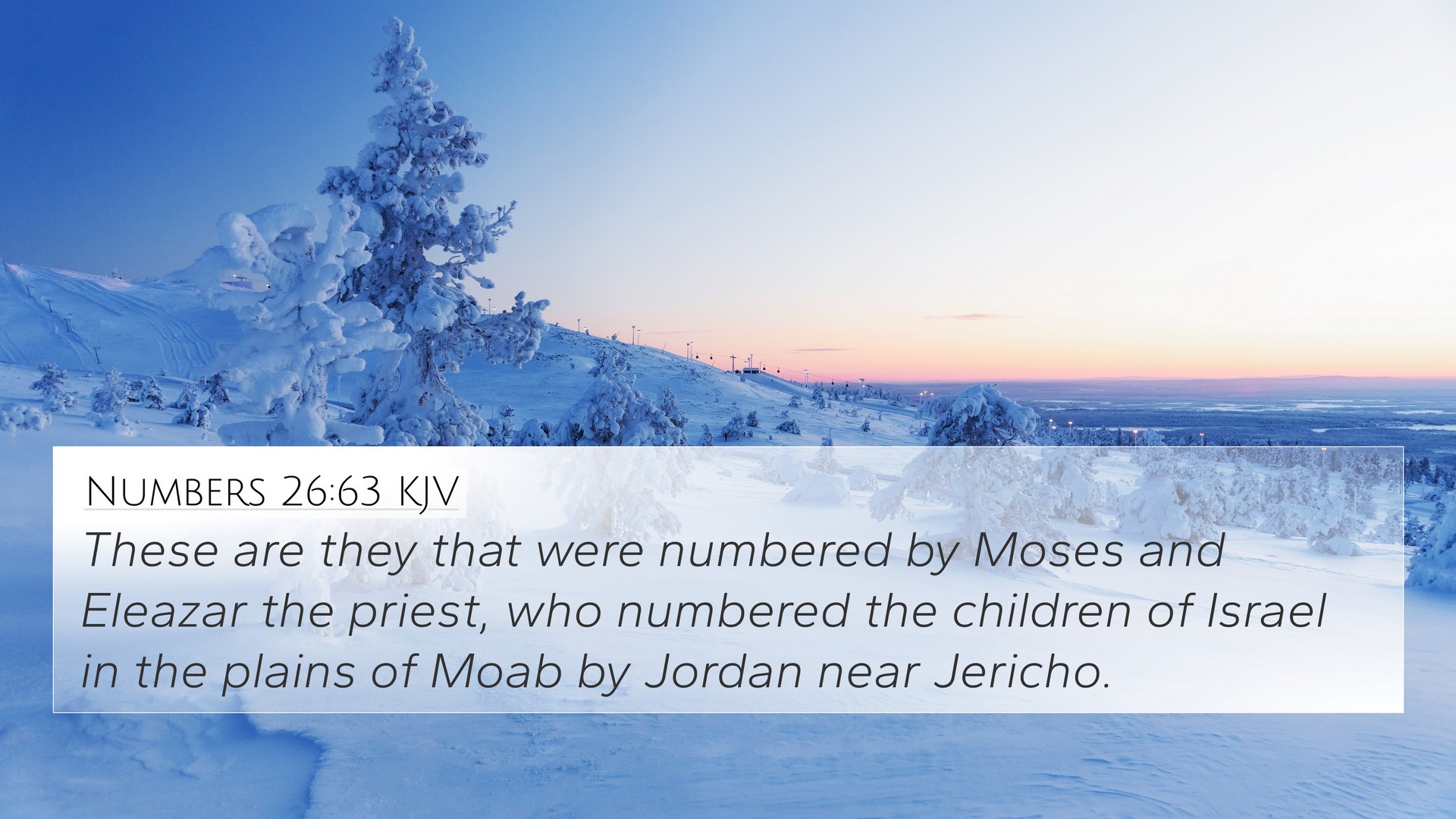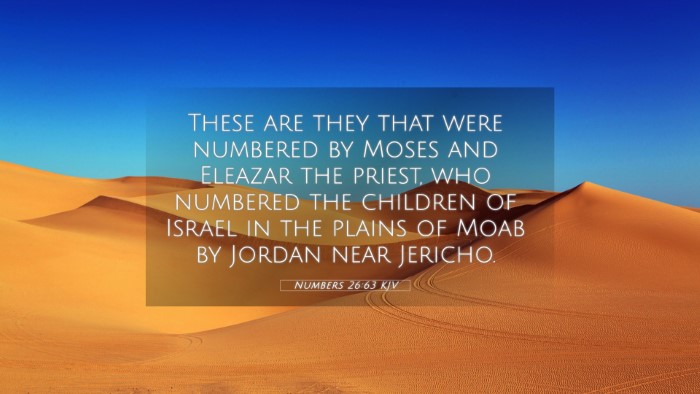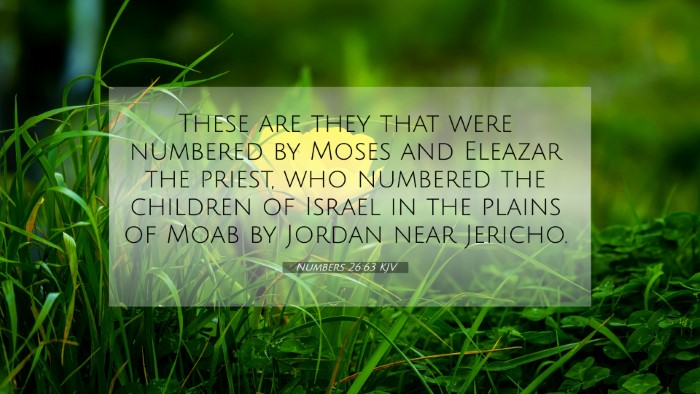Understanding Numbers 26:63
The verse Numbers 26:63 states: "These are they that were numbered, which Moses and Eleazar numbered, in the plains of Moab, by Jordan near Jericho." This verse is situated within the context of the second census of the Israelites, highlighting its significance in understanding the organization and continuity of God's people as they prepare to enter the Promised Land.
Summary of Verse Meaning
Numbers 26:63 serves as a statement of record-keeping and accountability within the community of Israel. Through the act of numbering, Moses and Eleazar emphasize God's faithfulness in preserving a remnant of His people. This is crucial for understanding the covenant relationship that the Israelites have with God.
Insights from Commentaries
-
Matthew Henry:
Henry emphasizes the importance of this census as a means of establishing the order and structure within the Israelite community. He suggests that this act of numbering is a way to recognize God's continued presence and guidance among His people, ensuring that they remain distinct and organized as they transition into the Promised Land.
-
Albert Barnes:
Barnes provides insight into the implications of this census. He notes that the numbering signifies not just physical enumeration but also the spiritual state of the people. Each individual counted represented the whole community, and their numbering by Moses and Eleazar signifies divine oversight and providence.
-
Adam Clarke:
Clarke highlights that this verse comes at a significant juncture in Israel's history—just as the generation that had initially left Egypt is passing away. He remarks that this counting serves to illustrate God's faithfulness to His promises, as He continues to sustain His people through generations, culminating in their eventual inheritance of the land.
Cross-References and Thematic Connections
To fully grasp the implications of Numbers 26:63, it is essential to consider its connections with other Bible verses. Below are several related verses that underline similar themes of counting, community, and God's faithfulness:
- Exodus 30:12: Highlights the concept of a ransom for souls during census-taking.
- 1 Chronicles 21:1-30: Discusses David's census and its consequences, reflecting on God's displeasure with improper counting.
- Matthew 10:30: Emphasizes God's attention to even the minutest details of His creation, underscoring the theme of divine awareness reflected in the census.
- Hebrews 11:32-34: Mentions faith exemplified through the actions of Israelite leaders, linking back to the Israelites’ journey and their identity as God's chosen people.
- Numbers 1:1-2: Provides context about the first census and its significance for Israel's organization.
- Romans 11:5: References a remnant of grace remaining among God's people, connecting to the preservation theme in Numbers.
- Revelation 7:4: Discusses the sealing of the 144,000 servants of God, drawing parallels to the organization of Israel.
Conclusion
In conclusion, Numbers 26:63 illustrates the meticulous nature of God's organization among His people as they prepare to claim their inheritance. The act of numbering signifies more than mere statistics; it reflects God’s ongoing relationship with His people, their identity, and His sovereign guidance. Through understanding this verse alongside comments from notable biblical scholars, we can appreciate the vital connections and parallels that enrich our understanding of Scripture.
Tools for Bible Cross-Referencing
For those interested in deeper study, utilizing Bible concordance and cross-reference Bible study tools can enhance comprehension. Exploring Bible reference resources will enable the discovery of additional verses that correlate with Numbers 26:63, fostering a better understanding of the overarching narrative within Scripture.



